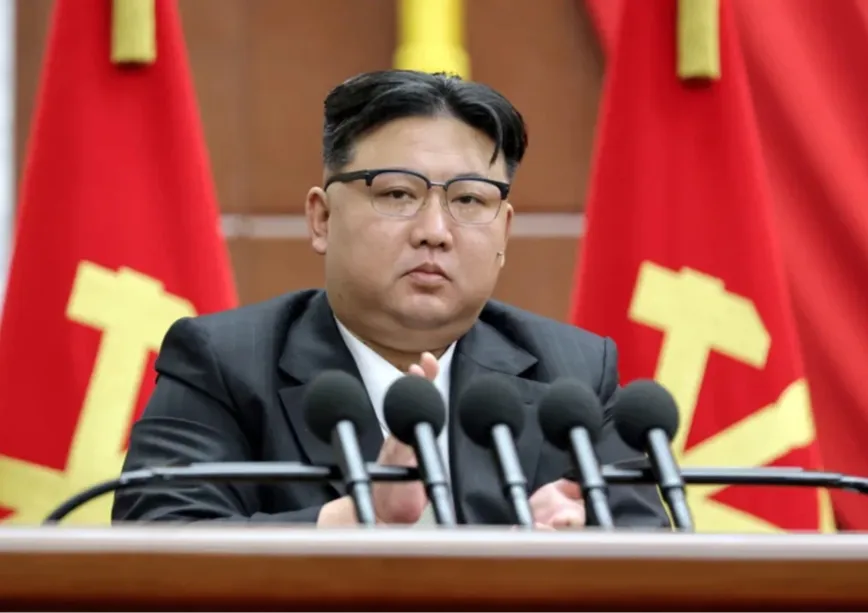-
CENTRES
Progammes & Centres
Location
North Korea's decision to abandon its long-term aim of reunification with South Korea presents a complex situation for the Korean Peninsula and also the international community

On 15 January, Kim Jong-Un announced that North Korea would jettison its commitment to unify with South Korea, remove the clause from its constitution, and identify its southern neighbour as its principal enemy while ordering the closure of all state agencies dedicated to the goal of unification. The announcement comes close on the heels of heightened sabre rattling by Pyongyang, with 2024 being off to a rockier-than-usual start for Northeast Asian security. Shortly after firing several rounds of artillery near the disputed western sea boundary with South Korea from 5-7 January, Pyongyang launched a solid-fuel hypersonic missile on 14 January and announced on 9 January that it had tested an “underwater nuclear weapon system”.
The announcement by North Korea stating that it is scrapping its long-term aim of reunification with South Korea carries significant implications for the Korean Peninsula. This shift in North Korea's stance, as well as the statement that the country will not initiate war but will not avoid one either, raises several key concerns and considerations. The abandonment of the reunification goal signifies a departure from a decades-long aspiration of bringing the two Koreas together under a single government. The ambiguous stance on war by North Korea introduces uncertainty and raises tension in the Korean Peninsula which has been a longstanding hotspot of international concern due to Pyongyang’s nuclear ambitions and advances. Any hint of a willingness to engage in conflict, even if not actively seeking it, amplifies the risks of military escalation.
The announcement by North Korea stating that it is scrapping its long-term aim of reunification with South Korea carries significant implications for the Korean Peninsula.
The announcement also poses a diplomatic challenge for neighbouring countries and the United States (US). South Korea, China, Japan, and Russia have all played roles in efforts to maintain stability in the region and encourage denuclearisation talks with North Korea. The sudden change in North Korea's objectives may require a re-evaluation of regional strategies and diplomatic initiatives. South Korea, being the closest and most directly affected neighbour, faces a particularly delicate diplomatic task. For decades, South Korea's government has pursued policies aimed at peaceful engagement and eventual reunification with North Korea. However, North Korea's abandonment of reunification aspirations forces Seoul to rethink its approach necessitating a shift toward more robust security measures and a diversification of its diplomatic efforts, particularly with Tokyo and Washington, which the latter has been actively pursuing and will continue to do. The three countries have also conducted trilateral naval exercises immediately after Pyongyang’s artillery firing in the first week of January 2024. In response to Kim’s reunification announcement, Seoul has officially stated that it will continue its own efforts and initiatives concerning unification including improving the unification blueprint amid changes in inter-Korean relations. Japan, with its longstanding concerns about North Korea's nuclear capabilities and regional instability, is likely to become more apprehensive in the wake of this announcement. The change in North Korea's objectives heightens Japan's security concerns. The US, which has a substantial military presence in the region and has been a key player in North Korean denuclearization talks, must adapt to this new diplomatic landscape. Washington may need to reassess its approach to negotiations with North Korea and collaborate closely with regional partners.
Even though Kim’s announcement could be an effort to preserve domestic accord particularly, as parts of his broader speech focused on improving livelihoods and achieving economic goals, the statement may lead to increased pressure on North Korea's already struggling economy with recurrent food and energy shortages. Indeed, the number of defections from North Korea to the South tripled in 2023. International sanctions have been in place for years targeting its nuclear and missile programmes and human rights abuses. These sanctions have restricted the country's access to foreign currency, technology, and goods. As North Korea reorients its objectives, there may be questions about whether the international community should continue or adjust these sanctions. Indeed, Seoul urged the UN Security Council (UNSC) to break its silence on Pyongyang’s expanding nuclear programme. Despite imposing sanctions after Pyongyang’s first nuclear test in 2006 and tightening them over the years, the UNSC has been unsuccessful in curbing North Korea’s nuclear and ballistic missile programmes.
International sanctions have been in place for years targeting its nuclear and missile programmes and human rights abuses.
While the geopolitical situation has been tense, Pyongyang’s escalatory behaviour is largely rhetorical rather than substantial. Pyongyang is likely to continue drills, tests, and firings, and even move forward with the scrapping of all activities related to unification, but there is little to no chance of it undertaking a clear offensive. This is because North Korea knows any military offensive would inevitably create scope for Washington’s involvement which is a scenario that the former is not equipped to mount a response to. Nonetheless, North Korea's decision to abandon its long-term aim of reunification with South Korea while maintaining a stance that does not shy away from the possibility of war presents a complex and delicate situation for the Korean Peninsula and also the international community. It requires careful consideration, diplomatic engagement, and a commitment to maintaining peace and stability in the region, even in the face of evolving geopolitical dynamics. The shift in policy, combined with North Korea's history of unpredictability, demands a vigilant approach to safeguarding peace and security in the region.
Pratnashree Basu is an Associate Fellow at Observer Research Foundation
The views expressed above belong to the author(s). ORF research and analyses now available on Telegram! Click here to access our curated content — blogs, longforms and interviews.

Pratnashree Basu is an Associate Fellow, Indo-Pacific at Observer Research Foundation, Kolkata, with the Strategic Studies Programme and the Centre for New Economic Diplomacy. She ...
Read More +